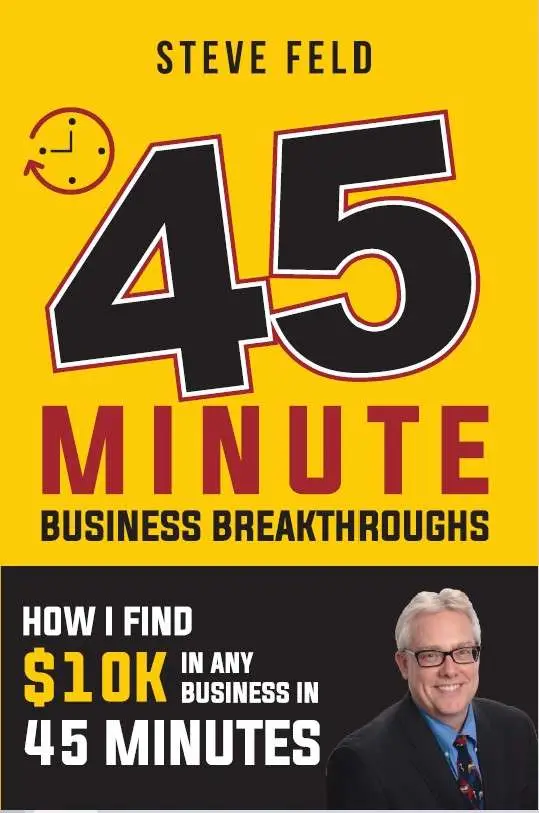TODAY!
By Steve Feld|2023-05-14T21:25:02-07:00May 18, 2023|Categories: Business, Entrepreneur, Leadership|Tags: Business, Change, entreprenuer, Leadership, Owner, success|
Building a Customer Pipeline
By Steve Feld|2023-04-30T21:49:00-07:00May 4, 2023|Categories: Business, Coaching, Entrepreneur, Leadership, Sales|Tags: Business, entreprenuer, Growth, Owner, sales, success|
11 Simple Ways to Develop a Daily Discipline
By Steve Feld|2023-04-17T03:12:48-07:00April 20, 2023|Categories: Business, Coaching, Entrepreneur, Leadership|Tags: Business, Coaching, entreprenuer, Growth, Leadership, Owner, success|
Money-Leverage!
By Steve Feld|2023-03-08T00:07:42-07:00March 23, 2023|Categories: Business, Coaching, Entrepreneur, Leadership, Sales|Tags: Business, Change, Coaching, entreprenuer, Growth, Leadership, Owner, sales, Start up, success|
How to lose a Sale
By Steve Feld|2023-03-08T20:55:24-07:00March 9, 2023|Categories: Business, Coaching, Entrepreneur, Sales|Tags: Business, entreprenuer, Growth, Owner, sales, success|
Manage Yourself
By Steve Feld|2023-03-08T20:48:20-07:00February 16, 2023|Categories: Business, Coaching, Entrepreneur, Leadership|Tags: Business, Coaching, entreprenuer, Leadership, Owner|
Don’t build on borrowed land
By Steve Feld|2023-03-08T20:26:27-07:00February 9, 2023|Categories: Business, Coaching, Entrepreneur, Leadership, Sales|Tags: Business, Change, entreprenuer, Growth, Leadership, Owner, sales, Start up, success|
Do you have a Customer Pipeline?
By Steve Feld|2023-03-08T20:40:52-07:00January 26, 2023|Categories: Business, Coaching, Entrepreneur, Leadership, Sales|Tags: Business, entreprenuer, Growth, Leadership, Owner, sales, Start up, success|
7 Marketing Strategies that will Skyrocket your sales and profits
By Steve Feld|2023-01-19T22:33:21-07:00January 13, 2023|Categories: Business, Coaching, Entrepreneur, Leadership, Sales|Tags: Business, Change, Coaching, entreprenuer, Growth, Leadership, marketing, Owner, sales, Start up, success|
Start today to change EVERYTHING
By Steve Feld|2022-12-26T18:43:49-07:00January 7, 2023|Categories: Business, Coaching, Entrepreneur, Leadership, Sales|Tags: Business, Change, Coaching, entreprenuer, Growth, Leadership, Owner, sales, Start up, success|











